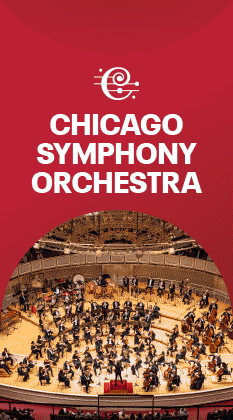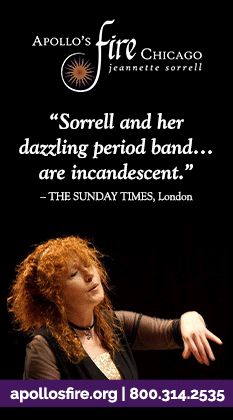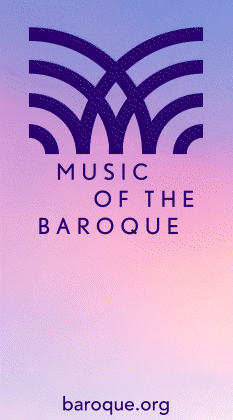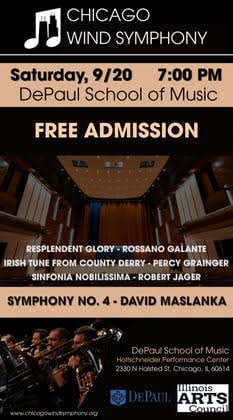Yuja rocks a full house with keyboard fireworks and artistry
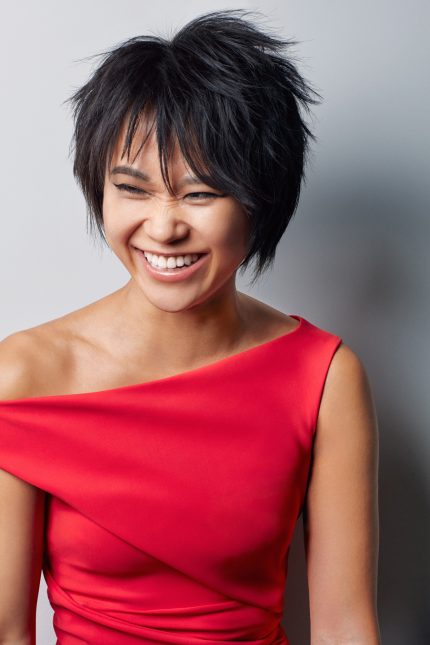
Yuja Wang. Superstar.
With apologies to Webber and Rice, the song syllables fit as perfectly as the event Sunday afternoon when the celebrated Chinese pianist returned to Chicago for a recital at Symphony Center.
Lest anyone doubt Wang’s widespread appeal and crossover popularity, the sold-out house—which spilled over to onstage seating—was a testament to the 33-year-old pianist’s status as the undisputed reigning rock star of classical music. The audience adulation was manifest throughout the afternoon with thunderous applause after every piece, and vocal outcries at each Wang reentrance—including the woman who screamed “We love you!” after her final encore.
Wang is best known for her feats of dazzling virtuosity yet, while there was plenty of that pyrotechnical display late in the recital, her discerning tour program seemed designed to show her as a musician of depth and poetry as much as barnstorming bravura.
Reflecting Wang’s desire that every program should be a “living organism,” the pianist reshuffled the order of the 14 works. That could make things interesting for underprepared critics, but it did indeed lend a fresh, spontaneous quality as one continually wondered what might come next.
Entering in a long, skintight sequined silver gown, Wang led off with Scriabin’s two-movement Piano Sonata No. 4. The pianist brought a free rubato and jazz-like quality to the moonlit meditation of the opening Andante, throwing off the surging Prestissimo finale with power and aggressive brilliance.
Ravel’s “Une barque sur l’ocean” from Miroirs followed. Wang conveyed the restless tension beneath the undulating repose of the rippling right-hand figures, with lovely pellucid tone in the final bars.
Bach’s Toccata in C minor, BWV 911, felt a bit romanticized in Wang’s hands, though she built up a daunting head of steam to the contrapuntal thickets of the concluding fugue.
Alban Berg’s Piano Sonata, Op. 1, provided—somewhat surprisingly—the highlight of the first half. At times Wang seemed characteristically impatient, a bit too reluctant to explore Berg’s pages of tonally ambiguous introspection. Yet she otherwise charted the single-movement span masterfully. There was an organic, natural quality to the ebb and flow that was wholly compelling—exhilarating playing in the breakout chromatic sections yet imbuing the coda’s broken-chord lyricism with hushed, glowing expression.
With a change to a yellow gown after intermission, Wang began the second half with a real curio, the Andante from Baldassare Galuppi’s Sonata No. 5. Best known in his lifetime (1706-85) for his operas and sacred works, Galuppi is rarely played today. One was grateful for Wang’s reintroduction since the Andante offers a gorgeous melody, played with poised, affecting tenderness.
Much of the second half was centered on music of Brahms and Chopin paired by keys—late piano works by the former interstiched with three Mazurkas by the latter (in A minor, Op. 67, no. 4, C-sharp minor, Op. 30, no. 4, and F major, Op. 68, no. 3).
Wang’s Chopin proved less consistent—vital and boldly projected but a bit forced and hectic, with dance accents aggressively punched out in music that needs to offer more supple rubato and poetic allure. The Brahms Intermezzi (Op. 116, no. 2, Op. 119, no. 2 and Op. 117, no. 3) had some nice moments but proved similarly uneven, Wang never quite relaxing enough into the essential autumnal rumination of these pieces. Brahms’ Romance in F major, Op.118, no. 5 ,was the exception, beautifully played with a touching depth of interior expression.
There is a Dionysian aspect to Wang—or her musicianship at least—that makes her especially well-suited to the works of Alexander Scriabin. Her performance of the Russian composer’s single-movement Fifth Sonata was about as insightful, idiomatic and electrifying as one will ever hear. The pianist conveyed the strange otherworldly mystery as surely as the feverish bursts, with her whipping up Scriabin’s waves of tumultuous frenzy en route to a blazing coda.
The pianist closed the retooled program with the “Secreto” section of Federico Mompou’s Impressions intimes, fully capturing the austere, rarefied expression of the Spanish composer’s distinctive style.
Then it was party time. The rock-stadium ovations eventually brought Wang back out and she promptly lit the fireworks fuse with a staggering performance of Vladimir Horowitz’s Carmen Variations— thrown off with a speed and velocity (and accuracy) one didn’t think possible.
More thunderous ovations followed and the pianist returned for a graceful take on Liszt’s retooling of Schubert’s song “Gretchen am Spinnrade” to end the afternoon.
Daniil Trifonov performs Bach’s The Art of Fugue and Bach transcriptions by Brahms, Liszt and Rachmaninoff 3 p.m. March 1 at Symphony Center. cso.org; 312-294-3000.
Posted in Performances
